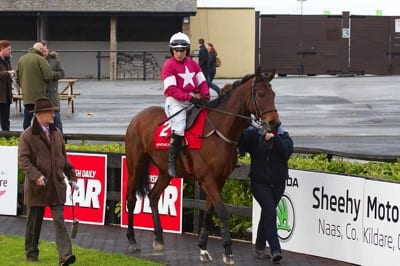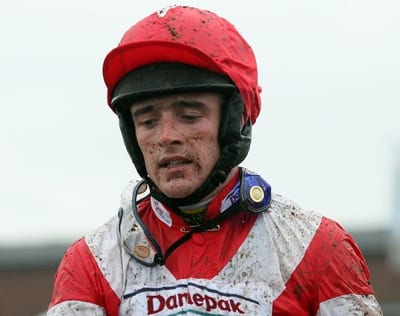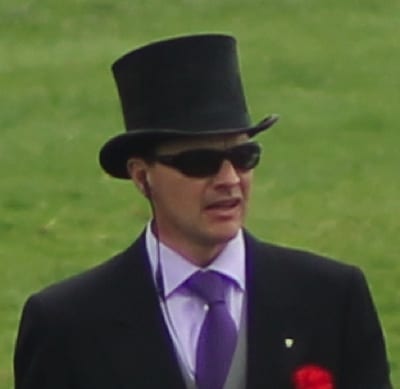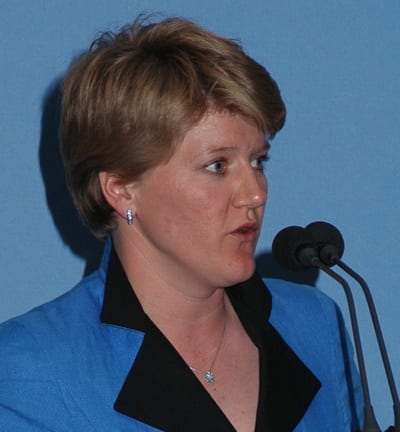
It would be unfair to describe the world of horse racing as a closed shop, yet it’s also true that there are certain families that seem to have been involved in the industry for decades. Like father like son, as the old saying goes; although when it comes to horse racing that applies just as equally to daughters, nieces and nephews. It makes sense, of course, for a trainer to use a family member as a jockey if they’re good at what they do, so the notion of nepotism is rife in horse racing.
There are plenty of examples throughout the industry. Most people will have heard of Lester Piggott, for example, but not many will know the name of his grandfather, Ernest Piggott. You would if you’d been around in the 1900s, though, given that he made a name for himself as a talented jump racing jockey. Perhaps the most famous names in modern racing are those of the Mullins, Walsh and O’Brien families, so we’ll have a look at them in more detail here as well as a couple of other noteworthy racing families.
Mullins
Where else to start but with one of the most successful racing families of recent times? Mullins
is a name synonymous with success, regularly training the favourite horse in the majority of races at the Cheltenham Festival, for example. Born William Peter Mullins on the 15th of September, 1956, he is based in County Carlow in Ireland and was a jockey before he became a trainer.
It was always in the blood for Willie, of course. Paddy Mullins passed away in 2010, ending a career as a trainer which had lasted for fifty-two years. He enjoyed six wins at the Cheltenham Festival, which might have been where Willie got his taste for the meeting from. One of those wins included Dawn Run’s success in the 1986 Gold Cup. Despite the family being known for its ties to jump racing, Paddy actually trained the winner of two well-known flat races.
Willie has a son, also called Patrick Mullins, who is an amateur rider plying his trade in Ireland mostly on his father’s horses. Willie’s wife isn’t to be left out either, having been a successful amateur jockey during her youth. His brother, Tom, was a jockey and remained unbeaten when riding Dawn Run, but he turned to training when the riding got too much for him. Likewise Tony Mullins, the third brother, was a professional rider before turning to training.
As you might imagine, the Mullins children have also found a career in the world of racing. We’ve already mentioned Willie’s son Patrick, but Tony and his wife Mags, who was also a champion jockey, had a son called Danny. He began life with 126 winners in the pony riding circuit and then turned to riding horses as an apprentice for Jim Bolger.
George Mullins, the fourth son of Paddie, didn’t go into trainer or riding but does run a horse transportation company that the rest of the family, as well as other top trainers, use. Emmet, George’s son, has been riding professional since 2006 and has enjoyed some decent wins since then. Finally, comes Sandra McCarthy, who did bear the Mullins name until she got married. She was a rider but is mainly known as a racehorse owner nowadays.
Walsh

In the world of horse racing, there aren’t many better known names than that of Ruby Walsh. The Irish National Hunt champion jockey and leading jockey at the Cheltenham Festival more than ten times apiece, Walsh was one of the most successful jump racing jockeys ever to climb into the saddle. It’s no wonder that the very mention of his name had punters rushing to bet on the horse he was riding. The likes of Kauto Star, Annie Power and Faugheen all enjoyed major successes thanks to Ruby Walsh’s unparalleled ability over jumps.
As with Willie Mullins, there was little doubt of the career that Walsh would go into thanks to the success of his father, Ted Walsh. Ted was born in County Cork but based in County Kildare, he won four races at the Cheltenham Festival during his career, including the Queen Mother Champion Chase in 1979. When he decided that it was time to hang up his spurs he became a trainer, seeing Ruby ride Papillon to victory in the Grand National in 2000 and Commanche Court in the Irish Grand National. He also made a decent career in the media, too.
As well as one of the most successful male jockeys of his generation, Ted also had a child who would go on to be one of the best female jockeys of her generation. Katie Walsh became the first female to finish in the traditional places when she took Seabass to third in the Grand National in 2012. She was also successful in the Cheltenham Festival, riding three winners. In 2015, she became just the third female jockey to win the Irish Grand National, taking Thunder And Roses across the line.
Does it count when someone marries into the family? It probably does when that somebody is another top-class female jockey, so Nina Carberry is as worthy of her place on this list as anyone else. Ted Walsh Junior isn’t known as well as the other members of the family as being a huge part of racing, but when he married Nina in February of 2012 he brought another member of racing’s empire on board. Nina, of course, is the daughter of Tommy Carberry, who was himself a well-known jockey who won the Grand National in 1975, as well as two Gold Cups in 1970 and 1971 on the back of L’Escargot.
O’Brien

The great and the good of the horse racing world have passed through the training yard of Aidan O’Brien at one time or another. His list of ‘significant horses’ reads like a Who’s Who of the horse racing industry, with names such as Istabraq, Rock Of Gibraltar and Mastercraftsman all on there. He’s been the private trainer for Ballydoyle Stables in County Tipperary since 1996 and deals with the horses of John Magnier and the Coolmore Stud.
Whilst Aidan O’Brien’s family wasn’t necessarily big in the horse racing world as he was grown up, that of his wife Anne-Marie certainly was. Joe Crowley was a respected horse trainer in his own right in County Kilkenny. Anne-Marie took over from her father before handing the reign’s over to Aidan in 1993. In 1996, when he left for Ballydoyle, Anne-Marie’s sister Frances Crowley took over the training for a time before herself moving on to Curragh.
All four of Aidan and Anne-Marie’s children became jockeys. Joseph O’Brien was an apprentice for his father, with the pair becoming the first father & son team to win The Derby when they achieved that in 2012 as Joseph rode home Camelot at the age of 19. Whilst Sarah and Anastasia O’Brien have both enjoyed minor successes as jockeys, neither of them are quite at the level of Joseph.
The one O’Brien child that can claim that particular title is Donnacha, who rode his first winner back in 2014 when Quartz, trained by Joseph O’Brien, crossed the finish line in first place at Dundalk Stadium. It took him another years to earn his first Group 1 win when intricately was victorious in the Moyglare Stud Stakes. Donnacha has made a name for himself riding in flat races, becoming the Irish flat racing Champion Jockey back in 2018.
Other Families Worth Mentioning
Whilst the Mullinses, Walshes & O’Briens are the most noteworthy names in the world of horse racing and the ones the most worth delving into, there are plenty of others who are valid to mention at this point. Here’s a look at them:
Balding

Anyone who has ever watched sport on the BBC or the yearly coverage of Crufts will know the name of Clare Balding, given that she’s regularly been hosting such events. She made her name as an amateur jockey in flat racing, which she did from 1988 until 1993. She became Champion Lady Rider in 1990 and in 2012 she won the Autobiography of the Year Award for her memoir, My Animals And Other Family. The book documented her life growing up in a racing yard.
That’s because she is from a family that has long been associated with the sport. Ian Balding, Clare’s father, began training horses in 1964 and moved to Kingsclere when he was twenty-six. It was there that he earned a reputation as a top trainer, predominantly working in flat racing. Arguably his most famous horse was Mill Reef, who won a prized trio of the Derby, the Prix de l’Arc de Triomphe and the King George VI and Queen Elizabeth Stakes in 1971.
When Ian retired as a trainer in 2002 he handed over the reigns at Park House Stables to his son – Clare’s brother – Andrew. He has followed in his father’s footsteps of being equally adept at training horses, with the likes of Casual Look, who won the Oaks in 2003, amongst those that have come from his yard. Andrew and Clare’s link to horse racing isn’t limited to just to their father, either. Their maternal grandfather was a noted trainer named Peter Hastings-Bass, whilst their maternal uncle was a former trainer to the Queen.
As if that wasn’t enough, Ian’s brother was Gerald Barnard Balding Jr. Better known as Toby Balding, he is one of just a select few trainers to have seen their chargers win all three of the Cheltenham Gold Cup, the Grand National at Aintree and the Champion Hurdle. It shouldn’t be seen as too much of a surprise that the family has such close links to the world of horse racing, given that Gerald Barnard Balding, Sr ran a polo team in America and the family has lineage to the Early of Derby via Clare and Andrew’s maternal grandmother, Priscilla Hastings, who was one of the first women that was elected to the Jockey Club.
Scudamore
Even those that have only a passing interest in the world of horse racing will likely have heard of the Scudamore family courtesy of Peter Scudamore. He was an eight-time Champion Jockey in jump racing, winning the likes of the Triumph Hurdle, Champion Hurdle and Welsh Grand National during his career. He rode more than one and a half thousand winners during a career that was largely during the 1980s and the early part of the 1990s.
Peter Scudamore’s wife is the Scottish horse trainer, Lucinda Russell. Given an OBE in the 2018 Queen’s Birthday Honours list, Russell trained One For Arthur, who won the Grand National in 2017. They have two sons in the horse racing business, with Michael Scudamore Jr being a trainer in his own right. It is Tom Scudamore who is better known, however, having followed in his father’s footsteps and become a flat and jump racing jockey who got his first win in 1998.
The patriarch of the family is Michael Scudamore, who was born in 1932 and rode in the Grand National sixteen times in succession. One of those times was in 1959 when he won the race with Oxo. That came two years after he won the Gold Cup at Cheltenham on the back of Linwell, and three years after he won the Grade 1 King George VI Chase at Kempton Park. His riding career came to a premature end in 1966 when he fell at Wolverhampton and suffered multiple fractures along with a collapsed lung and the loss of 90% of his vision in one of his eyes.